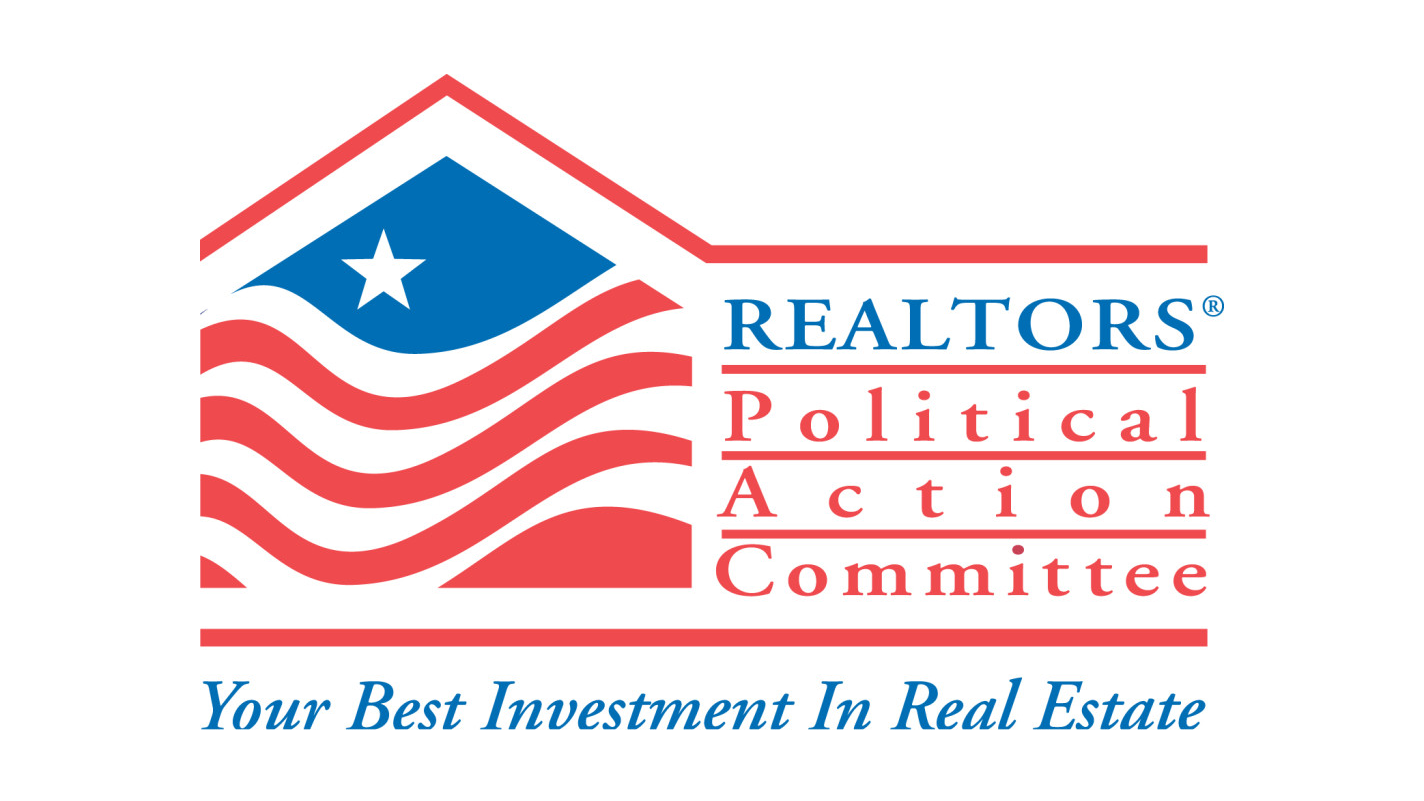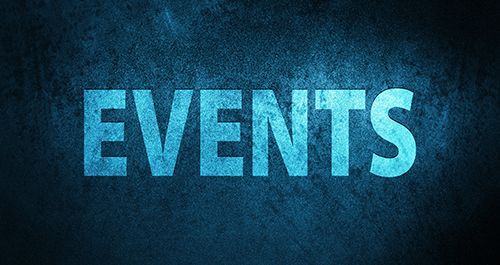Priorities
Legislative Priorities that are promoted at the Local, State and National Levels
Legislative Updates
Advocating for Co-op Transparency: HGAR and NYSAR Testify Before NYC Council
HGAR and NYSAR submitted in-person testimony before the New York City Council on Tuesday, December 2, 2025, in Manhattan, in support of legislation (Int. 1120). The legislation, sponsored by Council Member Farias, would establish reasonable timelines for co-op boards to respond to an applicant when a completed application is submitted and provide notice if the applicant is rejected or accepted.
Currently, co-op boards are not required to acknowledge the receipt of a purchase. This lack of response from co-op boards harms buyers, who typically have mortgage rates locked in for a limited amount of time, and sellers who may need the proceeds from the sale to finance the purchase of a new home.
Five counties surrounding New York City (Suffolk, Nassau, Rockland, Dutchess and Westchester) have already enacted local laws similar to Int. 1120. Now, it is time for New York City to adopt co-op transparency laws.
HGAR, along with NYSAR and other local REALTOR® associations across New York have long advocated for transparency in the co-op housing application process to combat illegal discrimination and help more individuals achieve the dream of homeownership.
SALT Deduction Cap Temporarily Raised, Boosting Affordability in High-Tax States
Under the “One Big Beautiful Bill” (H.R. 1), signed by President Trump on July 4, the SALT deduction cap increases to $40,000 starting in 2025—up from $10,000—and rises slightly each year through 2029 before reverting, unless extended by Congress. A phaseout applies for incomes over $500,000. The law also keeps mortgage interest deductions at levels set by the 2017 Tax Cuts and Jobs Act.
Learn More
- NAR Consumer Guide: State and Local Tax (SALT) Deductions
- Real Estate In-Depth Article: Rep. Lawler, HGAR Celebrate Higher SALT Cap
HGAR's Success in Albany 2025
Key Legislative Wins for HGAR & NYSAR:
A.6869/S.7320:
- Addresses discriminatory practices in real estate appraisals.
- Prohibits bias in the appraisal process and reinforces fair housing standards.
- HGAR made this bill a top priority during the 2025 Albany Lobby Day.
- Sponsored by Assemblymember George Alvarez (Bronx) and Senator Brian Kavanagh (Lower Manhattan).
A.7691/S.5426:
- Raises broker licensing requirements.
- Increases required education hours from 120 to 150.
- Expands minimum experience requirement from 2 to 5 years.
- Increases mandatory fair housing training from 4 to 6 hours.
- Long supported by NYSAR and HGAR as part of their legislative priorities.
- Sponsored by Senator James Skoufis.
A.5886-C/S.6361-B:
- Limits residential listing agreements to a maximum of two years (renewable only by mutual agreement).
- Originally proposed to cap agreements at one year, but HGAR and NYSAR successfully advocated for a two-year limit.
- Sponsored by Senator Jamaal Bailey (Bronx).
Bills Blocked or Defeated:
REST Act (A.4877-A/S.4659-A):
- Would have expanded rent control powers outside of New York City by allowing municipalities to declare local housing emergencies.
- Blocked due to NYSAR’s advocacy efforts.
A.331/S.572:
- Proposed a real estate transfer tax to fund Community Housing Funds.
- Opposed by NYSAR due to concerns about the burden on homebuyers and real estate transactions.
A.8888/S.8417:
- Eliminates utility companies' responsibility for covering the cost of connecting new homes to nearby natural gas lines.
- Impact expected to be limited, as most new buildings will go fully electric by January 2026.
FAIR Act (Revised Version):
- Expands protections against “unfair” and “abusive” practices in addition to “deceptive” conduct.
- Revised from an overly broad version to a more enforceable and measured approach.
- NYSAR worked with legislative leaders to refine the language.
Looking Ahead:
Governor’s Consideration:
- The governor will now review and consider the bills that passed both houses of the legislature.
2026 Legislative Session:
- The session will be significant with both the full legislature and governor up for re-election.
- HGAR and NYSAR are preparing for the next cycle and ensuring real estate interests remain central in Albany.
Governor Hochul Proposes New Initiatives to Address the Housing Crisis and Make Rent and Mortgages More Affordable (1/14/2025)
Proposes the Nation’s First Statewide Legislation To Address Rent-Price Fixing Collusion Through Algorithms
New $100 Million Investment in the Pro-Housing Communities Fund Will Support Critical Housing Infrastructure
Creates New York’s First-Ever Revolving Loan Fund To Spur Mixed-Income Rental Development Outside New York City
Makes Bold Investments To Preserve Supportive Housing Statewide
Strengthens Tools To Unlock Housing Development, Including Redeveloping Vacant and Historic Properties
Governor’s 5-Year Plan To Build Or Preserve 100,000 Units of Affordable Housing Is 50 Percent Complete — Ahead of Schedule
Governor Kathy Hochul today proposed a bold plan to make owning and renting a home more affordable as part of her 2025 State of the State. The Governor proposed bolstering the Pro-Housing Community Program by investing $100 million to support critical housing infrastructure projects, creating the state’s first revolving loan fund to spur mixed-income rental development outside of New York City, and passing legislation to address rent-price fixing collusion by landlords. These proposals build off the Governor’s announcement last week of new steps to make homeownership more accessible and affordable to all New Yorkers.
“The top driver of our affordability crisis is the rising cost of rent and mortgages, and New Yorkers need our help, ” Governor Hochul said. “After passing a landmark housing deal last year, it’s time to continue the fight with new measures to make life more affordable for tenants and homeowners.”
Governor Hochul worked with the Legislature on a landmark housing deal in last year’s budget, with incentives for new construction and strengthened tenant protections. The housing deal builds on Governor Hochul’s historic $25 billion, five-year housing plan to create or preserve 100,000 affordable homes statewide, which has reached the milestone of 50,000 affordable homes ahead of schedule. Governor Hochul has also committed $1 billion to help New York City become a “City of Yes for Housing Opportunity,” the most significant pro-housing rezoning in the city’s history.
Unlocking Local Development
Create $100 Million New York State Pro-Housing Supply Fund
Governor Hochul signed Executive Order 30 in July 2023 creating the Pro-Housing Community Program, which recognizes and rewards municipalities actively working to unlock their housing potential and encourages others to follow suit. In the State Fiscal Year 2025 Enacted Budget, Governor Hochul made the “Pro-Housing Community” designation a requirement for accessing up to $650 million in State discretionary programs. So far, 270 localities have been certified, with more than 420 submitting letters of intent from all corners of New York State. To further support localities that are doing their part to address the housing crisis, Governor Hochul will create a $100 million Pro-Housing Supply fund for certified Pro-Housing Communities to assist with critical infrastructure projects necessary to create new housing, such as sewer and water infrastructure upgrades.
Provide Communities Technical Assistance to Become Pro-Housing
Without resources, some communities may not have the ability to design and adopt pro-housing policies such as master plans, zoning text updates, and streamlined permitting procedures. To help ensure more localities that want to promote housing growth have the ability to do so, Governor Hochul will provide new grant funding to offer technical assistance to communities seeking to foster housing growth and associated municipal development.
Streamline Environmental Review for Modest Housing Development
New York is streamlining regulations to expedite the construction of more homes for families and individuals while implementing environmental safeguards. Governor Hochul will advance proposed regulation to allow modestly sized home development, such as certain multi-family housing with no more than 10,000 square feet of gross floor area, to proceed as ‘Type II,’ which offers a simpler pathway towards completion. This approach not only accelerates the construction of much-needed homes but also addresses the critical shortage of affordable housing facing everyday New Yorkers. By thoughtfully streamlining the regulatory process we can facilitate the timely development of housing, making it more accessible to families and individuals.
Strengthening Investment in Communities
Launch New York State’s First Mixed-Income Revolving Loan Fund
With major forthcoming economic investments in upstate New York, such as Micron’s $100 billion investment in Clay, the state continues to need an all-of-the-above approach to the housing supply to address acute housing needs and accommodate job growth. Too often, however, upstate communities do not have the tools to create mixed income rental housing, leaving many developments permit-ready but unable to secure financing. To bridge this gap and unlock more housing, Governor Hochul will launch the State’s first revolving loan fund to spur mixed-income rental development outside New York City. The fund will fill construction financing gaps by providing a lower-cost and more flexible form of capital than is generally available in market financing. The funding will revolve and self-sustain over time through repayments once projects have converted to permanent financing after construction.
Double New York State Low Income Housing Credits
Modeled after the federal Low Income Housing Tax Credit Program, the New York State Low Income Housing Tax Credit Program (SLIHC) was signed into law in 2000 and has been critical to supporting the development of housing for low-and middle-income households. Governor Hochul will build on this success by proposing to double the amount of the tax credits available through the SLIHC program, making it the largest state low-income housing tax credit program in America. This action alone will generate upwards of $210 million in private investment in affordable housing per year.
Unlock Historic Tax Credits by Decoupling and Expanding Eligibility
Currently, New York State law requires Federal and State Historic Tax credits to be coupled together to the same investor and be available only in certain census tracts. These factors depress the economic value of both tax credits and needlessly turn investment away from housing projects, a problem felt especially acutely in upstate New York communities. Governor Hochul will propose legislation that can unlock the maximum value of the tax credits and eliminate the census tract eligibility requirement.
Empower Communities to Redevelop Vacant Properties into Housing
Many municipalities struggle to acquire and redevelop vacant and abandoned buildings. Many of these properties are in a significant state of disrepair due to years of neglect and are located in neighborhoods that lack the local economic conditions necessary to incentivize redevelopment by the private sector. Consequently, the investment required to redevelop these properties can exceed their value and the resulting funding gap prevents the property from being rehabilitated. Governor Hochul will better equip communities to fight back against blight while creating more affordable housing opportunities, both by proposing strengthening existing municipal authority to acquire vacant and abandoned buildings and by proposing to authorize localities across the state to adopt a tax exemption to incentivize redevelopment of these properties into affordable homes.
Protecting Housing Affordability
Ban Collusion Using of Algorithm-Enabled Rent Price Fixing
Real estate management software services are using proprietary information from their client base to aggressively push landlords to raise rents even when an increase in supply or a softening in the market would organically lower prices. Recent data show that price fixing algorithms cost tenants nationwide an estimated $3.8 billion more in inflated rents last year alone. The software companies make no secret that the algorithms are intended to raise rents, with some openly advertising that they can help property owners outperform the market, resulting in housing market distortion and hurting tenants during a historic housing supply and affordability crisis. Governor Hochul will take action to protect renters from these practices by proposing a statewide ban on the sale or use of rent price-fixing software.
Reduce Shelter Rent Taxes for Mitchell-Lama Residents
Mitchell-Lama Program supports 105,000 units of housing that are affordable to low- and middle-income families. Currently, Mitchell-Lama developments can receive a shelter rent tax abatement to reduce their share of local property taxes. However, the current tax abatement is often insufficient to address escalating increases in insurance, utility, and taxes that endanger building quality and the financial health of this critical supply of affordable housing. To provide much needed relief, Governor Hochul will propose legislation that will reduce Mitchell-Lama shelter rent taxes by at least half in New York City and allow for the same by local opt-in in the rest of the state.
Expand Capital to Maintain and Improve Supportive Housing
The Homeless Housing and Assistance Program (HHAP) was among the first programs in the country more than four decades ago to dedicate significant capital resources to creating housing, including permanent affordable and supportive housing, specifically for homeless individuals. Tens of thousands of units have been built since its inception, and today, requests for funding exceed what is available. To meet the growing demand for supportive housing and maintain existing units that provide a safe place to live for many of the most housing insecure and vulnerable New Yorkers, Governor Hochul will increase funding for HHAP.
Increase Funding for Supportive Housing
Governor Hochul has made landmark investments to expand supportive housing across New York State, recognizing that stable housing is the foundation for stable health and a stable life. Providers of supportive housing utilize two key State-funded programs to provide vital services to tens of thousands of New Yorkers, such as people with serious mental illness and substance use disorders who would otherwise be homeless. The Empire State Supportive Housing Initiative (ESSHI) has financed the supportive services and operating costs of over 9,600 units of safe and permanent housing for individuals and families in need, and the New York State Supportive Housing Program (NYSSHP) supports over 20,000 people living safely and stably in affordable housing. However, providers of supportive housing have not been immune to the impact of rising costs, which threatens future housing acquisition and their ability to provide the supportive services that make these programs unique and successful in helping people to remain stably housed. To ensure that New York State's supportive housing stock and services remain viable and accessible to those who need them most, Governor Hochul will take steps to stabilize both programs.
Extend Security Deposit Protections to Rent-Regulated Tenants
In 2019, New York State provided market-rate tenants statewide with protections for security deposits, including requiring the return of remaining security deposits within 14 days of vacating the unit and allowing tenants to request an inspection to determine what needs to be remedied to receive a security deposit back in full. Rent-regulated tenants were erroneously left out from receiving these important protections. The Governor will propose legislation to grant rent-regulated tenants the same protections for their security deposits as all other tenants.
Help Affordable Housing Access Captive Insurance to Lower Costs
Insurance costs for affordable housing have skyrocketed, with many owners reporting paying higher premiums for less coverage and renters bearing an increasing share of costs. In recent years, private insurance captives, which are similar to self-insurance and allow for tailored risk management, have been created specifically for affordable housing owners. However, these insurance captives often have eligibility standards for participation, which nonprofits may struggle to meet. Governor Hochul will provide assistance to nonprofit affordable housing owners to undertake repairs and other steps needed to be eligible for such captives.
New York State Homes and Community Renewal Commissioner RuthAnne Visnauskas said, "New York remains dedicated to fighting the housing crisis. From a new mixed-income revolving loan fund to initiatives to increase supply and keep costs down for renters, these innovative policies and funding commitments will help families find affordable homes in communities across the state. We thank Governor Hochul for her bold vision on housing and look forward to working with our partners on these policies."
New York State Office of Temporary and Disability Assistance Commissioner Barbara C. Guinn said, “We thank Governor Hochul for the significant increased investment in affordable and supportive housing to keep vulnerable New Yorkers who have experienced homelessness healthy, safe, and stably housed. New and continuing investments in the development, preservation, and operation of supportive housing will have a meaningful positive impact on our ongoing efforts to address homelessness and benefit communities throughout the state.”
NYSAR: New York State Legislature End of Session Update 6/10/2024
 End-of-session Summary
End-of-session SummaryOn Saturday, June 8, the New York State Legislature concluded its 2024 legislative session. In the days leading up, hundreds of bills moved rapidly through the legislative process as state lawmakers rushed to complete its business before the June 6 scheduled end-date. During that time, NYSAR identified harmful proposals gaining political momentum and quickly engaged lawmakers highlighting our concerns.
NYSAR’s successful advocacy this year demonstrates the value of the REALTOR® perspective on issues impacting real estate across New York. The following bills failed to advance following NYSAR’s engagement in opposition:
• Legislation that would have eliminated dual agency in the state (S.9686 and A.9823);
• NY HEAT Act, which would have expanded the state’s authority to discontinue residential and commercial natural gas services (S.2016-B/A.4592-B);
• Legislation that would have prohibited landlords from collecting a rental broker fee from tenants (S.2783/A.4781)
• Legislation that would have required all sellers of residential real property to provide a lead paint hazard test to a buyer or tenant prior to a transaction or lease (S.2353-A/A.4820-B);
• Legislation that would have required all real estate licensees to request, collect and retain personal demographic data on clients and submit such information to DOS annually (S.2352/A.10386);
• Legislation that would have authorized any city or town in the state to create a new real estate transfer tax in order to provide revenue for a community housing fund (S.7589-A/A.7496-A and S.4098-A/A.6257-A);
Our defense against many harmful bills this year, however, caps off a legislative session that saw record state investment in housing initiatives and funding after years of state inaction on a comprehensive housing plan. NYSAR remains supportive of these investments to incentivize and develop much needed housing across the state and will continue to work with state lawmakers in the best interest of our REALTOR® members. For more updates on NYSAR Government Affairs visit https://www.nysar.com/advocacy/.






